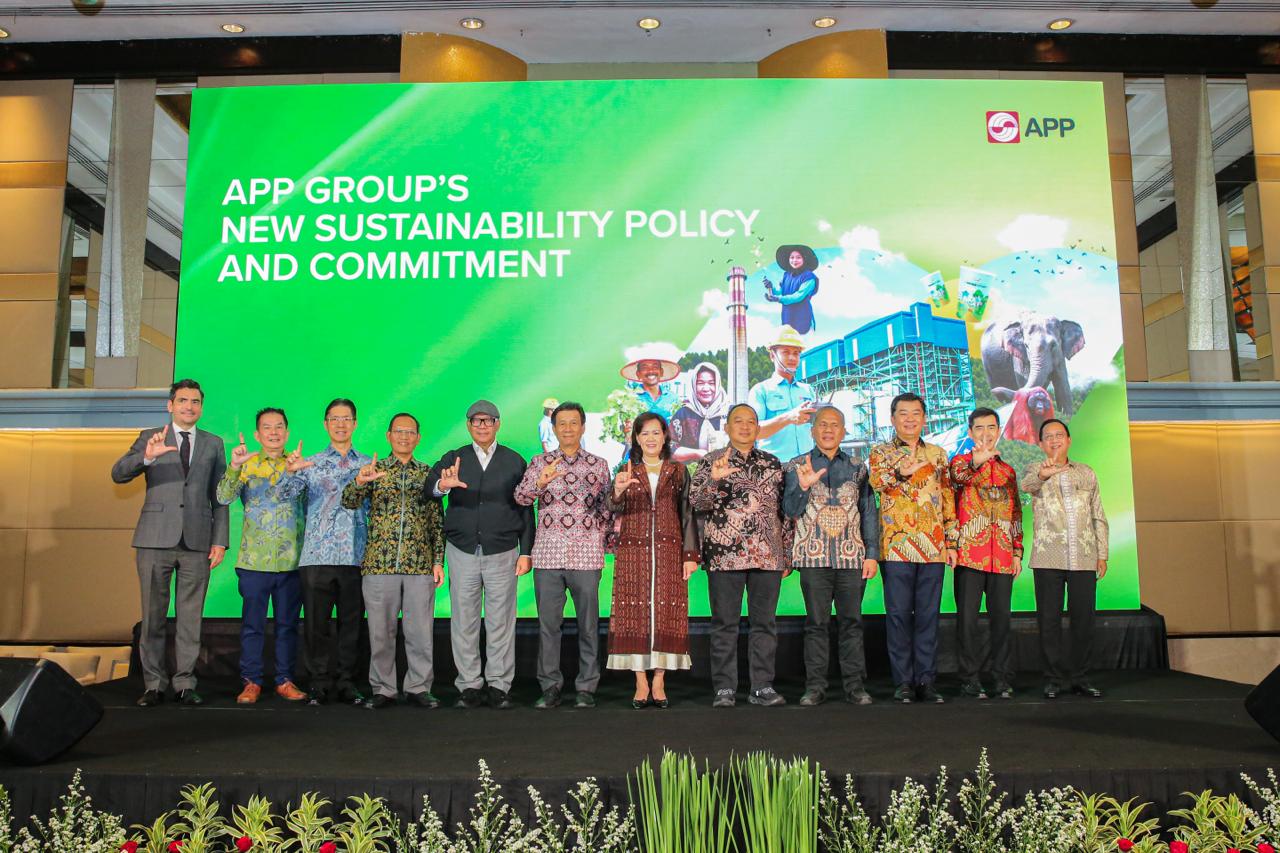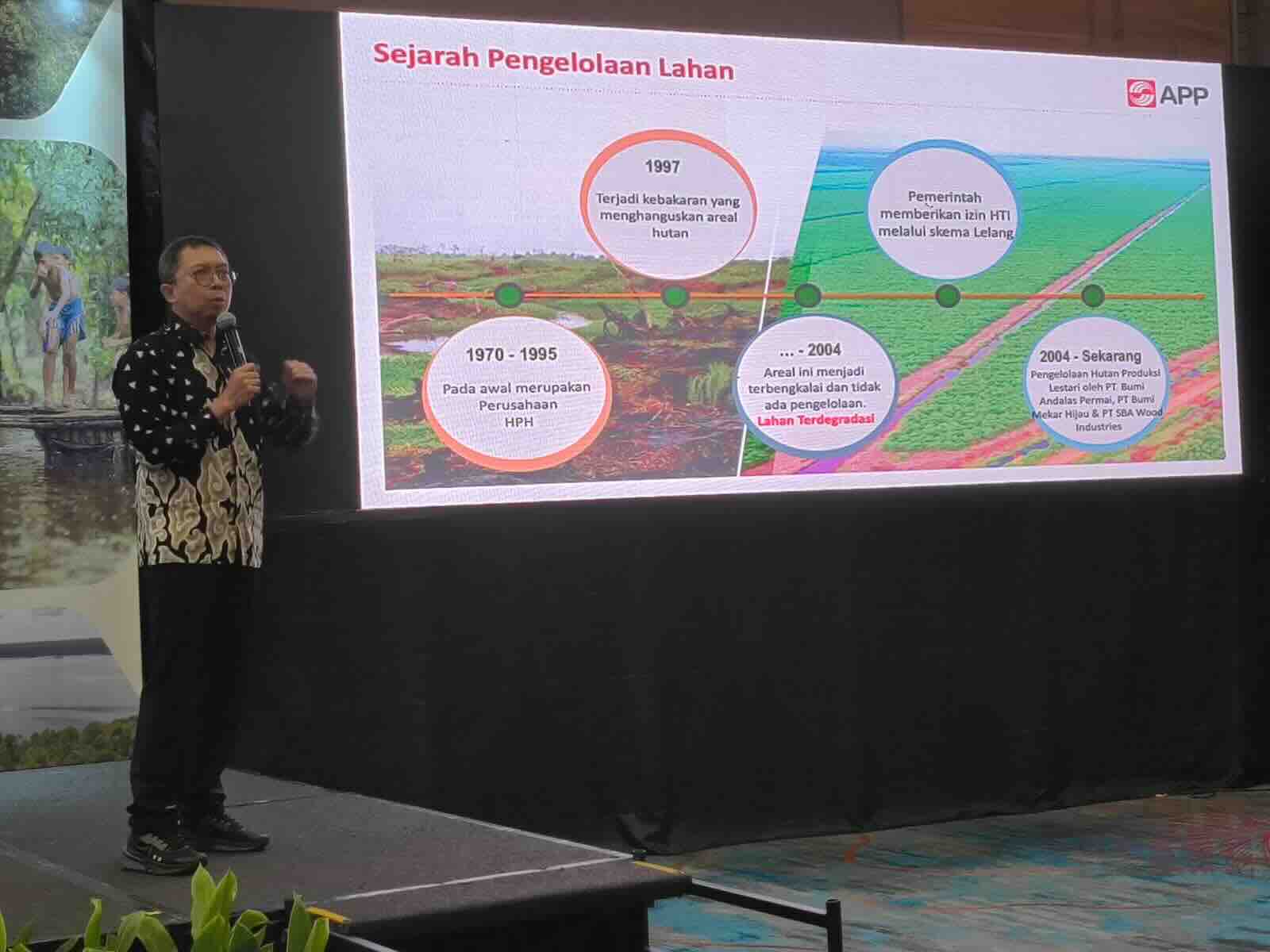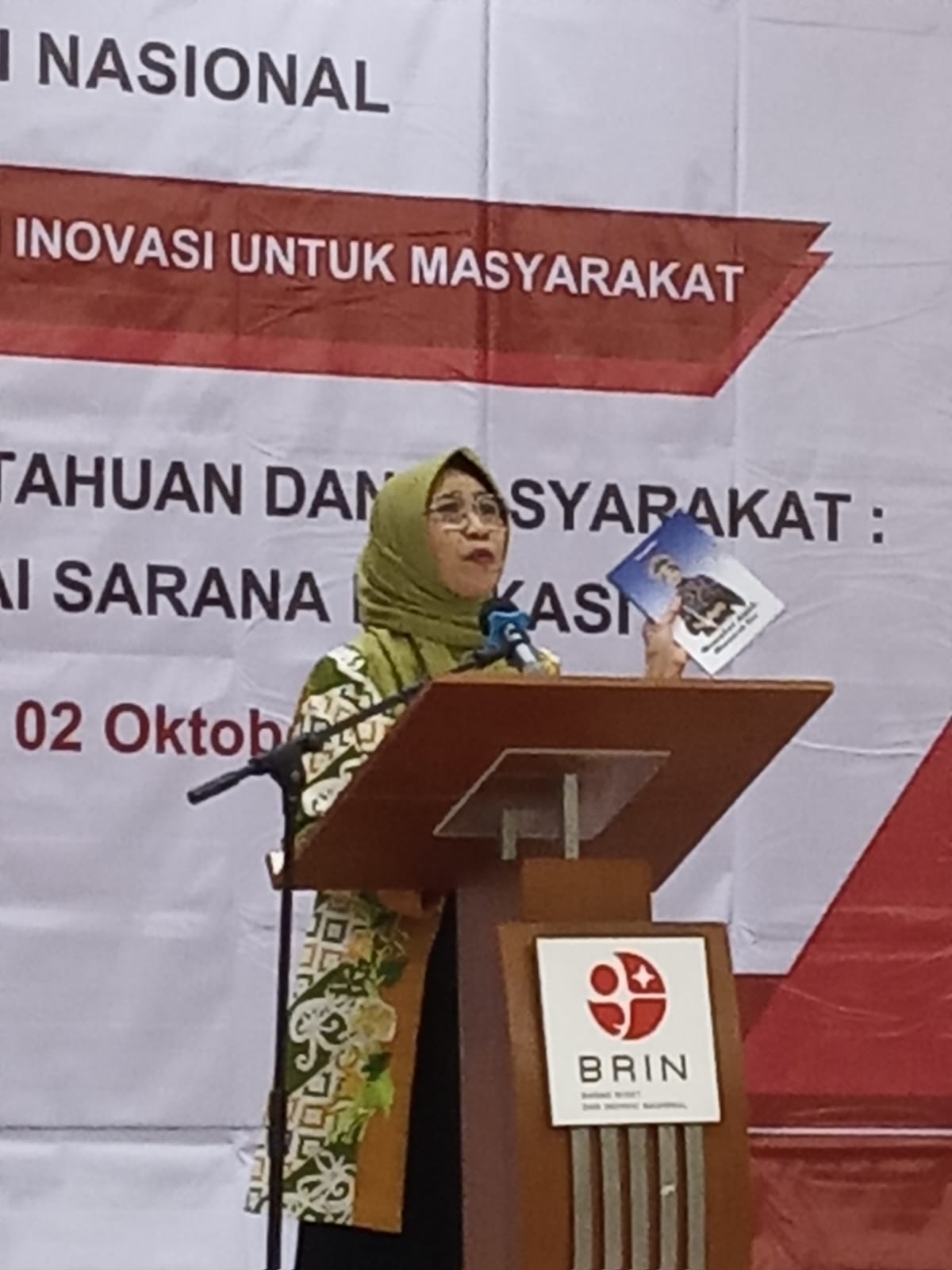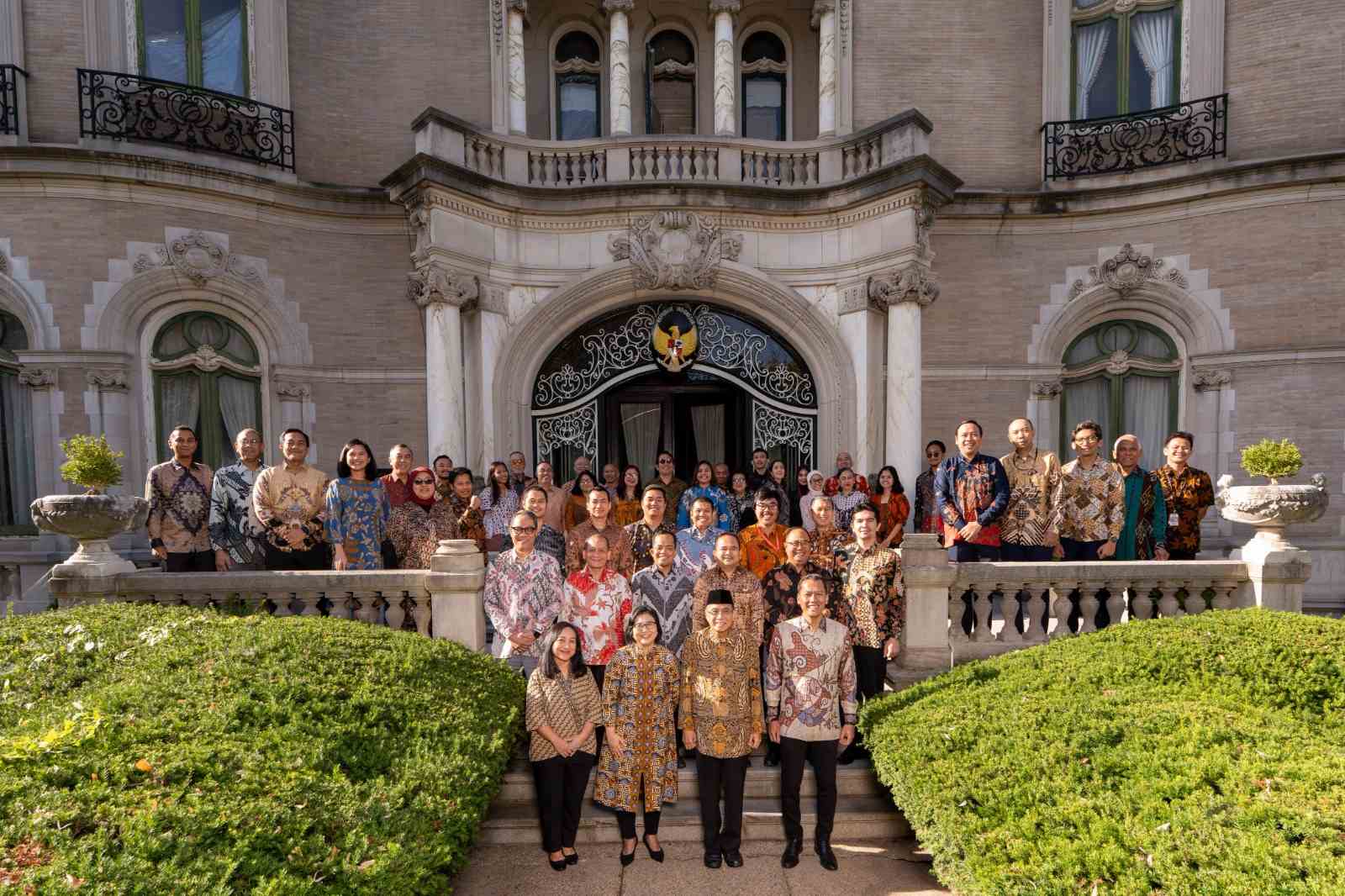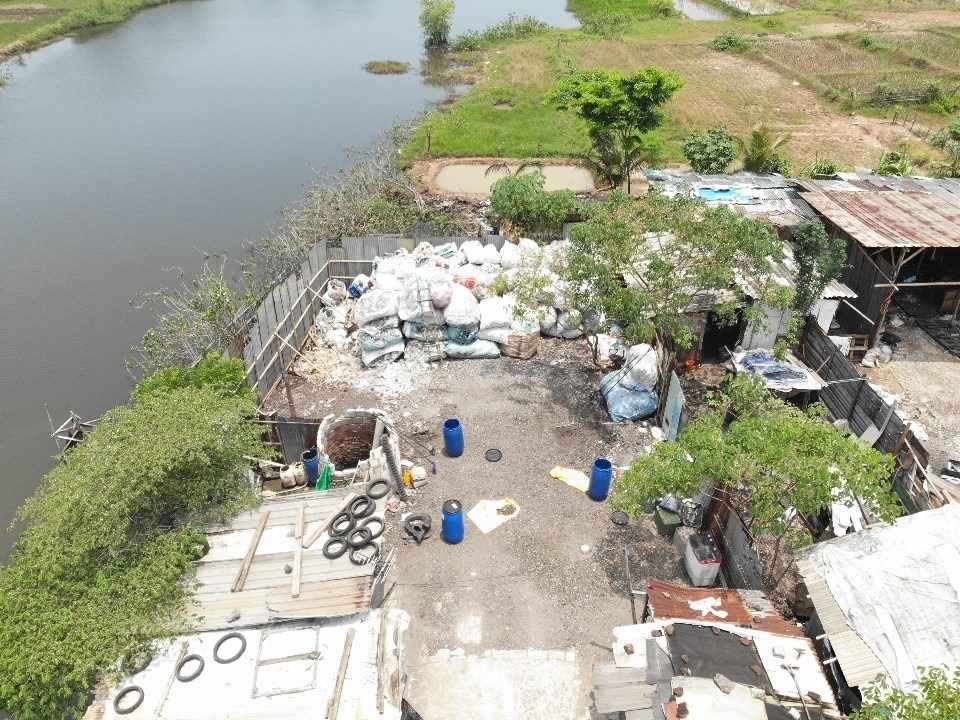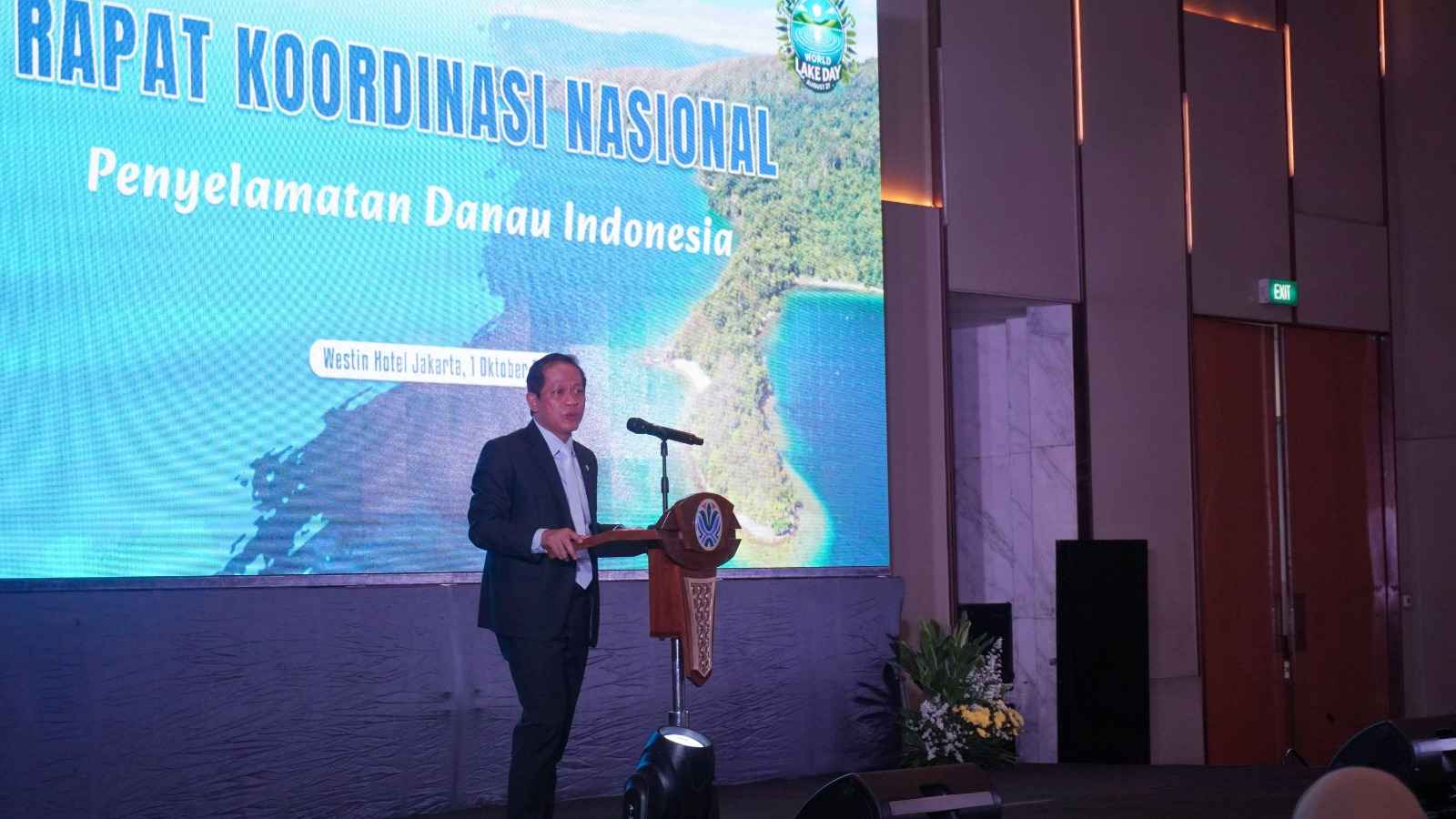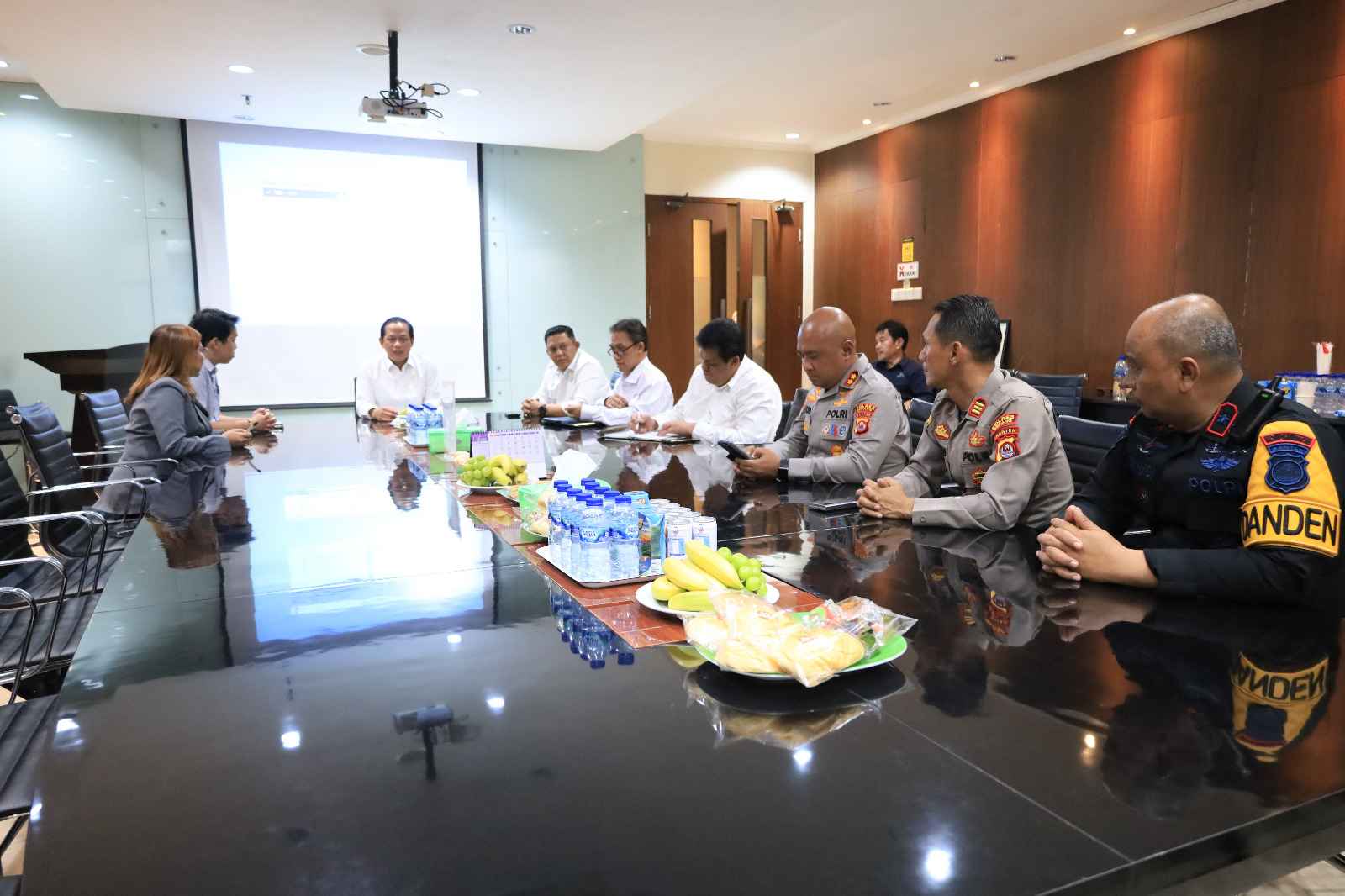Enviro News Asia, Jakarta – APP Group announced the launch of Regenesis, a new sustainability platform with a funding commitment of US$30 million annually for the next 10 years, at the Grand Hyatt Hotel Ballroom in Jakarta on Wednesday (September 10, 2025).
The initiative aims to conserve and restore one million hectares of tropical ecosystems in Indonesia, reinforcing APP’s position as one of the leading actors in sustainable forest management.
The Regenesis launch took place in Jakarta on September 10. The initiative is also aligned with Indonesia’s Biodiversity Strategic Action Plan (IBSAP) 2025–2045, issued by Bappenas, the Ministry of Forestry, and the Ministry of Environment.
APP reaffirmed its commitment to support the government’s agenda in preserving biodiversity and expanding environmental sustainability programs.
APP Group’s Chief Sustainability Officer, Elim Sritaba, explained that Regenesis symbolizes the adoption of a more regenerative sustainability model.
“With the launch of Regenesis, we are adopting a model that is not only about conservation but also about actively restoring ecosystems, supporting communities, and driving innovation across our value chain. This platform reflects our belief that responsible business growth must be rooted in environmental and social resilience to create shared value,” she said.
As the first milestone of Regenesis, APP introduced the Forest Positive Policy. This policy builds upon the achievements of the Forest Conservation Policy (FCP) introduced in 2013 and expands it into three main pillars: forests, people, and value chains.
The first pillar, forests, focuses on conserving and restoring one million hectares of landscape ecosystems across APP Group’s value chain. The company stated it will invest in sustainable landscape management, active restoration, and ensure positive ecological and biodiversity outcomes.
The second pillar, people, emphasizes community empowerment, respect for human rights, and inclusive development through fair labor practices. APP reaffirmed its commitment to ensuring that communities surrounding its operational areas directly benefit from the sustainability programs implemented.
The third pillar, value chains, highlights the creation of shared value for nature, climate, and APP Group’s business. This will be achieved through responsible supplier management and customer engagement to embed sustainability principles across the production chain.
Bernard Tan, Chairman of APP Group’s Sustainability Committee, described the Forest Positive Policy as an enhancement of the company’s long-standing commitments.
“Although we have long been committed to responsible forestry, the Forest Positive Policy takes our efforts to the next level by prioritizing large-scale conservation and restoration. This is an important step forward, strengthening ecosystem resilience, empowering communities, and embedding sustainability deeper into our value chain,” he said.
To support this policy, APP Group is preparing strict monitoring systems, transparent reporting, the establishment of a new restoration unit, and an external advisory panel. The company will also involve scientific bodies and independent experts to ensure measurable outcomes. APP stressed that it will work with various partners to support conservation and restoration efforts across the landscapes in which it operates.
Aditya Bayunanda, CEO of WWF Indonesia, considered APP’s funding commitment a significant step. “Financial commitment is critical, because we all know this process will not be cheap and will not be easy. For many of us who have worked in conservation and social issues for a long time, we understand that conservation is a long-term game. Conservation is a complex issue in Indonesia, especially in regions like Sumatra with many communities. This makes me more optimistic that APP is truly prepared to make a real investment in conservation,” he said.
A similar view was expressed by Rizal Algamar, Regional Director for Southeast Asia at the Tropical Forest Alliance under the World Economic Forum. He stressed the importance of focusing on ecosystem quality and community engagement, not just land area targets. “Many companies in the past have made commitments that only talked about numbers and hectares. In my opinion, what matters is not just the number of hectares, but the health of the ecosystems within the forest and the communities living around them. We need to truly engage from the beginning, in a meaningful way with communities, NGOs, partners, and local leaders. Because legitimacy ultimately comes from inclusion, shared priorities, and a collective sense of ownership,” he said.
APP also plans to strengthen its human resources and production policies over the next two years to align with global standards. President Director of PT APP Purinusa Ekapersada, Andrie S Yapsir, emphasized that this commitment is part of the company’s long-term strategy. “Through Regenesis and our Forest Positive Policy, we reaffirm our commitment to ensuring that our growth goes hand in hand with landscape regeneration and the well-being of the communities that depend on it,” he said.
With the launch of Regenesis, APP Group seeks to position itself as an industry player that is not only production-oriented but also ecologically and socially responsible. Through its three-pillar framework and Forest Positive Policy, the company places sustainability at the core of its business strategy while making a tangible contribution to national and global environmental agendas. The initiative is expected to serve as a model of collaboration between the private sector, government, communities, and civil society organizations in addressing the major challenge of tropical forest conservation in Indonesia. (*)




